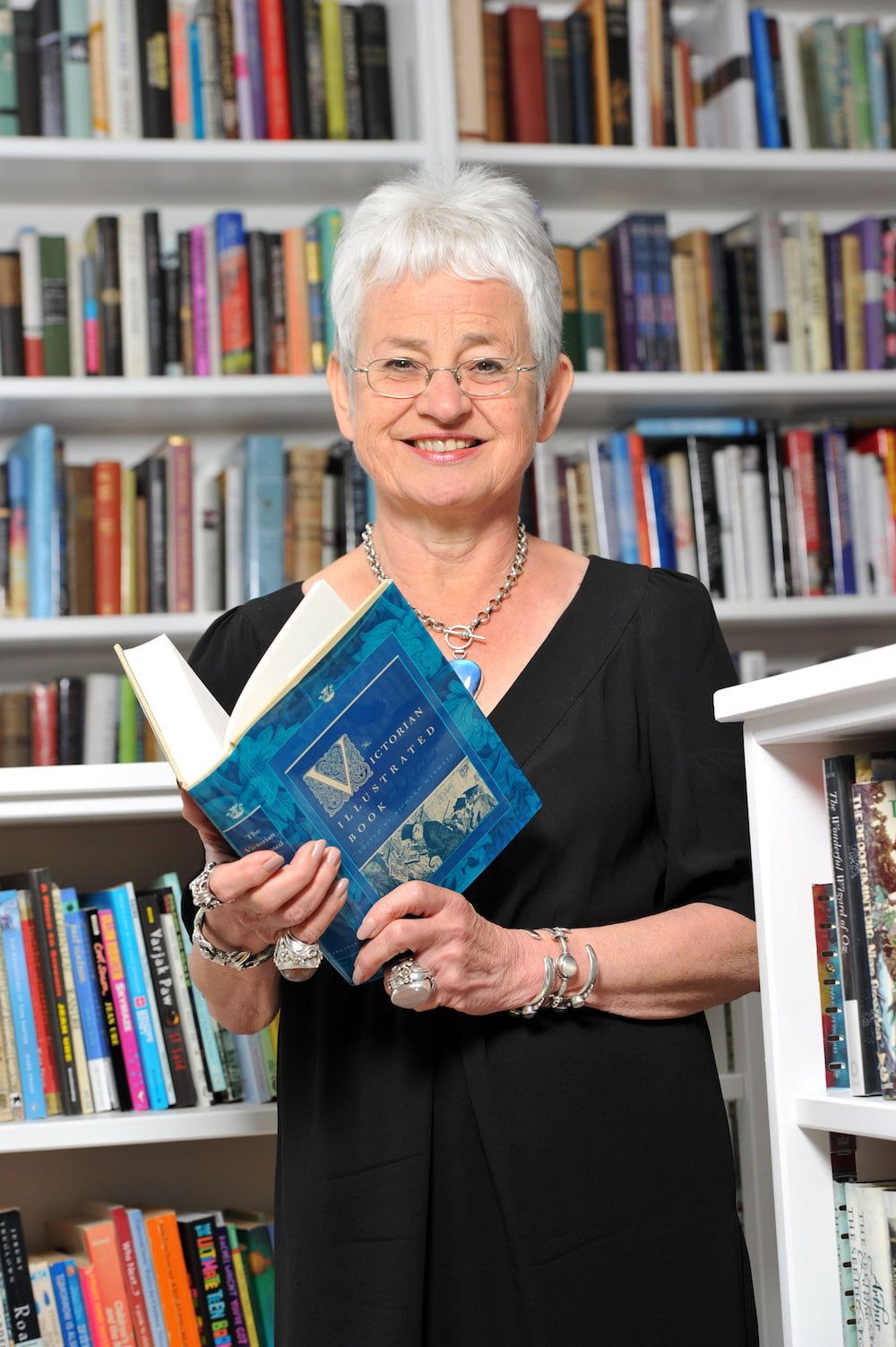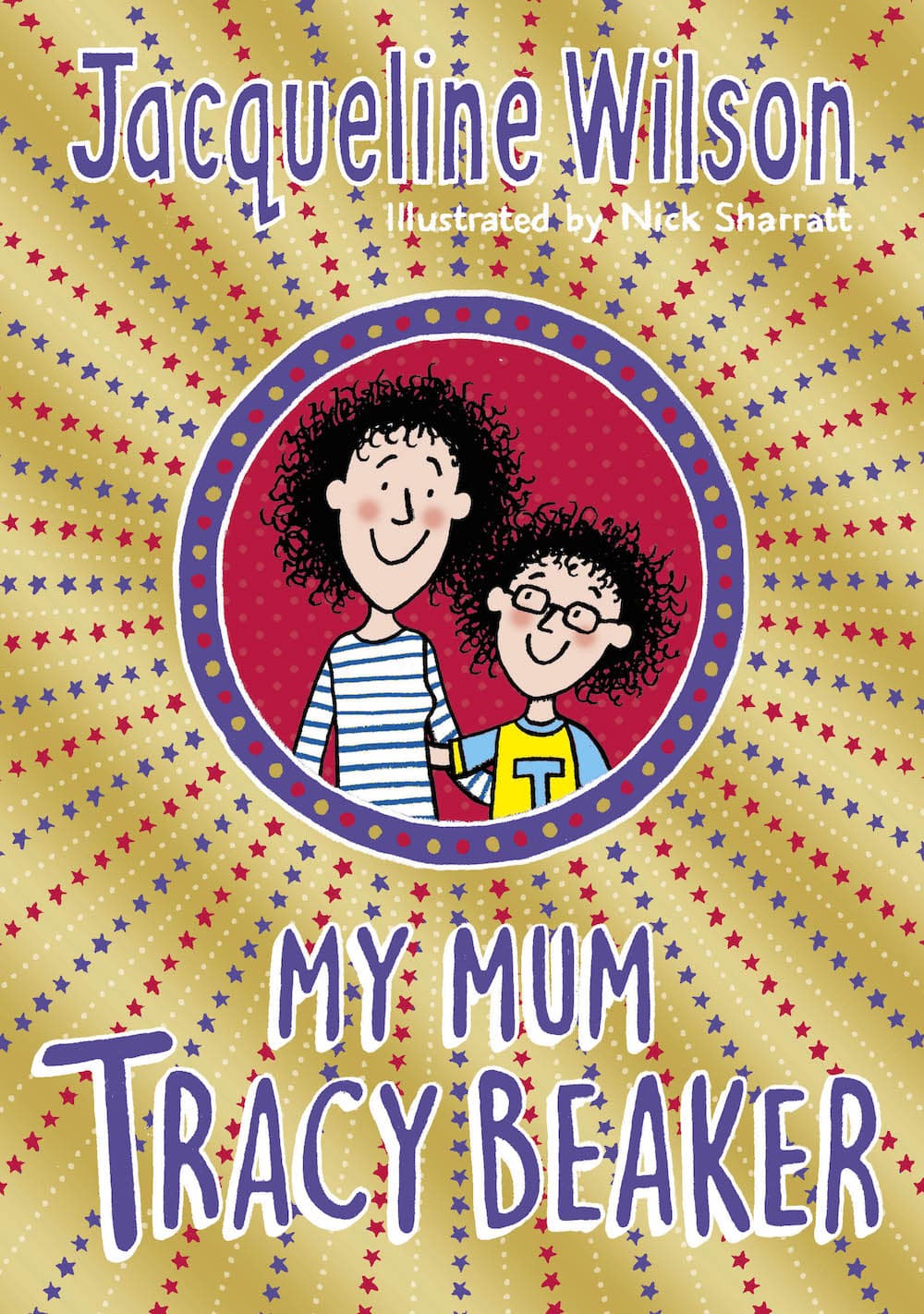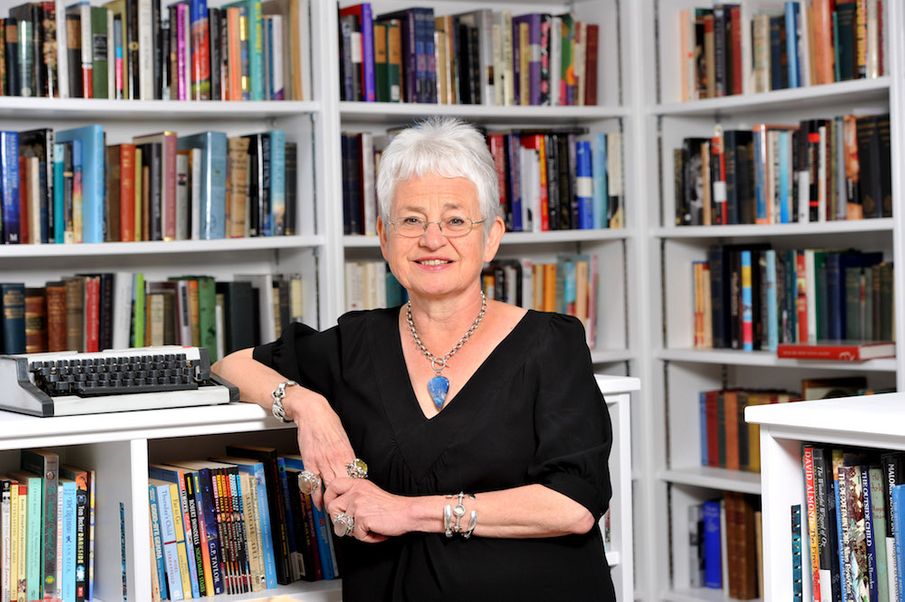As the legendary children’s author (and her most well-loved character) make a literary return, Happiful chats exclusively to Dame Jacqueline Wilson about Tracy Beaker, tackling tough topics, and how her stories never shy away from the difficult aspects of family life
Over the course of her literary career, which has seen her pen more than 100 books, Dame Jacqueline Wilson has been a part of countless children’s lives.
Whether through a reading programme at school, a night-time story with parents, or via TV adaptations, entire generations have enjoyed her work, as befits the woman who would go on to become the fourth Children’s Laureate.
The turning point in Jacqueline’s career came in 1991, when The Story of Tracy Beaker was published; a tale of a fiery child causing mischief and mayhem at her foster home (less- than-affectionately known as “The Dumping Ground”).
Although it’s been nearly three decades since then, and more than 10 years since the hit CBBC series starring Dani Harmer came to an end, Tracy Beaker remains an integral figure to parents and children around the UK, and beyond.
The intervening years have seen a decline in reading because of the rise of computers, smart phones, and gaming. Jacqueline’s return this year with My Mum Tracy Beaker – a story that sees the eponymous character all grown up and with a daughter of her own – is a welcome throwback to simpler times, for bookworms and the author alike.

Jacqueline Wilson
“Certainly, at the moment, absolutely truthfully, My Mum Tracy Beaker is my favourite book,” the author beams. “Tracy was my lucky character; she was my breakthrough book, and I feel almost as if I am her foster mum! I loved writing about her, loved writing about her daughter, and it was such a joy to revisit those childhood characters and have them acting, hopefully, exactly the way – or maybe not the way – that children would expect.”
Though her eponymous character may have matured somewhat, Jacqueline’s newest offering bears all the hallmarks of what has earned the Somerset-born writer such an esteemed place in children’s literature, encapsulating the joy and the struggles of everyday life.
“There was one book I wrote about a teenager who wasn’t anorexic, but certainly she started to diet severely,” she nods. “It was written in the first person, so I wanted her to feel, ‘Oh my God, I’m getting fat. I need to stop eating so much.’ And yet I was terrified that some nice, normal girl might start being encouraged to feel the same way, so you have to do it very carefully.
“I think that when you write for children and young people, you do have a responsibility to try very hard not to write anything that may make them follow suit. It’s a bit of a tightrope because some children are much more sensitive than others, and I just have to hope for the best.”
When browsing through Jacqueline’s uniquely colloquial style, accompanied by long-time co-collaborator Nick Sharratt’s wonderful illustrations, it’s easy to forget the deep thought that goes into the storylines and characters. In My Mum Tracy Beaker, Jacqueline touches on “that rather nasty teasing that happens at school”. With the modern-day social media pressures and online “trolling”, Jacqueline is concerned about the subsequent effect on children’s mental health.
“It is a very big and quite new concept,” she says of the upsurge in children experiencing adverse mental health. “It feels so difficult. I don’t know – I think if I felt worried about my child and what was going on in their life, I would try not to have a direct confrontation.
“But if we were both doing something together, like driving in a car or going around the supermarket even, then I would try ever so casually to say: ‘I’m feeling a bit fed up at the moment, you seem a bit down too? What’s up with you?’ and see if you can edge into it.”
There are, of course, even greater issues that some parents face. And as befits her “responsibility” as an author with young fans, Jacqueline is conscious that there are some problems that she could potentially end up exacerbating, regardless of her penmanship.

Jacqueline Wilson
“I wouldn’t ever write anything about children doing something that was truly dangerous,” she explains. “There’s an awful lot of worry at the moment about young people self-harming, and that is a subject that I wouldn’t tackle. Because I don’t want even one child to think: ‘Oh what does it feel like?’
That would be a dreadful thing. But on the other hand, you have to face up to the facts that lots of children are troubled, and go through difficult times. I think if I thought about it too much, it would stop me writing all together!”
Of course, Jacqueline’s choice of characters – from foster children to single mothers, and even Victorian foundlings – invites a certain degree of sadness in their interpretation. There is, however, a welcome other side to that same coin. The success of The Story of Tracy Beaker, for example, put paid to the problems Jacqueline encountered on the story’s release.
Where once there had been publishers unwilling to support the story of a troubled foster child because of the social stigma, there now stands only a figure of representation for such children – an aspect of Jacqueline’s writing that continues to this very day.
“A wonderful thing I’ve had, is lots of feedback from children who were in care who say that it has raised their status – though they haven’t exactly used those words,” she says. “In terms of making children aware that, just because you happen to be in care doesn’t mean that you’ve been bad or there’s something wrong with you, it’s just very sad circumstances.
“I also do think that authorities now are becoming more sensitive to the needs of looked-after children, and I’m particularly pleased that universities are trying much harder to make life easier for care-leavers. It’s still only a small amount of care-leavers who go on to further education, but there are actual projects that can help give extra tuition, extra help, and more scholarships. University accommodation is often for 365 days a year, because sometimes a care-leaver will have left their foster home or children’s home, but have nowhere to go during the long vacation, so I think that’s quite sensitive. But I still think you have to have a lot of grit and determination to get yourself into university and stay the course, because you don’t have the help and support of parents to egg you along.”
Jacqueline herself married young – “not something I would particularly recommend,” she laughs – and despite her leaving for Dundee and a job with publishers DC Thomson aged just 19, she has fond memories of her childhood.
Interestingly, she believes her particular talents for penning children’s literature comes down to an innate ability to vividly recall aspects and events from her youth, including the literary works that set her on the path to become the one-time most borrowed author from the nation’s libraries.
“A book I particularly enjoyed was Ballet Shoes by Noel Streatfeild, because the girls seemed so real,” she reminisces. “I like it that one of the girls, when she got a brilliant part in the play, it seemed so right that it would go to her head and she would become a bit of a show-off until she learned her lesson. And the tom-boy middle sister absolutely hates the idea of acting or ballet, and wants to be an engineer. These girls seemed as real to me as if they were my sisters, and I thought I would just love to write something where the characters feel so real.”

‘My Mum Tracy Beaker’ is out now
My Mum Tracy Beaker marks the first time the world will have seen the titular tearaway in 12 years, and a brand-new generation of kids could come to know Tracy Beaker as a single mother first, and foster home habitant second. With a huge bibliography already behind her, it seems that there’s no shortage of material for Jacqueline to work with, even if her latest book does concern a familiar face. “I don’t want people to think: ‘Oh, she’s running out of ideas for original characters so she’s just reworking old ones!’ So I’m considering doing a sequel to Jess and Tracy, to see what happens next, but I think on the whole I’ll be doing more original characters.”
And Jacqueline reveals how she can still be eternally affable, even when admitting to her life-long avoidance of the concept that plagues many authors: writer’s block.
“I am crossing my fingers here, but I don’t often get stuck at all!” she laughs. “Having said that, I do feel that having a good long walk – I have a dog who is very appreciative if this happens – and just not thinking about it, somehow or other things just sort themselves out in my head. Maybe when I get home and I’ve had a cup of tea I know what to do. I don’t sit at my desk wondering or worrying about it! I’ll just get out and forget about it for a time, and generally that works very well.”
‘My Mum Tracy Beaker’ is out now (Doubleday, RRP £12.99). Visit jacquelinewilson.co.uk to find out more, and discover more of her fantastic characters and stories.


Comments